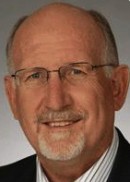Front Burner: Allow pastors to endorse from pulpit?
 (Orlando Sentinel, November 29, 2017)
(Orlando Sentinel, November 29, 2017)
Introduction by Michael Joe Murphy
At a National Prayer Breakfast shortly after taking office, President Trump pledged to end political limits on churches. With the U.S House of Representatives and Senate poised to vote on legislation that would rewrite much of the federal tax code, Republicans in Congress are about to make good on Trump’s vow to repeal a 1954 law that bans churches and other nonprofits from engaging in political activity.
Until now, any nonprofit that violated the ban could run afoul of the Internal Revenue Service. The tax code does allow a wide range of political activity by houses of worship, including speaking out on social issues and organizing parishioners to vote. However, churches risked losing their tax-exempt status if the preacher endorsed a candidate in a sermon.
All that could be subject to change by Congress, raising these questions:
Should pastors endorse from the pulpit? Would a repeal of the ban open churches to the possibility of spending their resources to openly try to influence elections — and for donors to get tax breaks for political contributions?
For thoughtful perspectives, we turned to two Central Floridians with strong positions about faith:
Jesse Phillips, a Seminole GOP state committeeman and lay elder of Redeemer Church at Lake Nona.
James Coffin, the executive director of the Interfaith Council of Central Florida.
Commentary: Brawls over politics would corrupt churches
By James Coffin
I consider myself a calm, level-headed guy. I’m not a conspiracy buff. I certainly don’t stand on street corners shouting to passersby that the sky is falling.
So it’s out of character for me to declare so emphatically that churches, synagogues, mosques, mandirs, gurdwaras, temples — houses of worship, in other words — may soon face an insidious assault that will have devastating long-term implications.
What am I talking about?
Back in 1913, when the United States passed its first national income-tax law, it granted tax exemption to “any corporation or association organized and operated exclusively for religious, charitable, scientific, or educational purposes. . . .”
But contributions made to political parties and political campaigns aren’t tax-deductible.
While tweaking nonprofit policy back in 1954, then-Sen. Lyndon B. Johnson (later President Johnson) drafted an amendment to an IRS bill saying that all nonprofits and their leaders were prohibited from officially endorsing specific political parties or candidates, or they would lose their tax exemption. But his amendment didn’t preclude nonprofits and their leaders from taking publicly articulated stands on issues being addressed in the political arena. That’s a crucial point.
In recent times, a small but highly vocal group of religious leaders have loudly proclaimed that the Johnson Amendment deprives them of religious freedom — even though the amendment applies equally to all nonprofits, religious or otherwise.
These religious leaders have lobbied vociferously for a repeal of the Johnson Amendment. And now, hidden deeply in 429 pages of proposed tax law are a few unassuming paragraphs that effectively provide what they’ve wanted. Unfortunately, if the law passes, religion will lose dramatically more than any paltry freedom it will gain.
I’ve worked in the religious nonprofit arena for nearly 42 years, 27 of those as a congregational pastor. I’ve sat through a lot of board meetings. Let me assure you, the tensions that can erupt over something so simple as whether to use the congregation’s limited funds to re-tile the restrooms or buy a bus for the youth will seem like whimpers compared to the verbal brawls that will break out when congregations start debating whether to officially endorse the Democratic, Libertarian or Republican party, and whether to endorse flawed candidate X or flawed candidate Y.
And things will heat up even more when the board tries to decide how much funding to allocate to politics.
And congregations will lose members as a result.
And many will become disillusioned and drop out altogether.
And the onlooking public will scratch its collective head in disbelief that a congregation could officially support a party or a candidate whose values are so inimical to what the congregation claims to embrace.
And politicians will put intense pressure on clergy and lay leaders to officially endorse them, leading to a new round of boardroom rabble with each new election cycle.
And money that would otherwise have gone directly to a political party or candidate will be channeled through the congregation’s coffers instead — because there it will qualify for tax-deductibility.
And with money comes power.
And power corrupts.
And . . .
Certainly, the government is not obligated to preserve harmony in the boardrooms of religious entities or to protect religion’s public image. But it’s truly ironic that, in their misguided effort to provide a sliver more religious freedom (which polls show most religious leaders definitely don’t want), lawmakers are imperiling religion itself.
James Coffin is executive director of the Interfaith Council of Central Florida.
_____________________________________________________________________________
Commentary: l’ll defend pastors’ right to endorse from pulpit, but I’d probably leave church
By Jesse Phillips
If you were a church-going person in the weeks leading up to the last election, you probably heard warnings from the pulpit about how this election (like all the others) was the most important election of our lifetime and our nation’s continued existence relied on its outcome. Depending on the type of church, America would never recover from either a Trump or Clinton presidency. After the votes were counted, America’s pulpits either breathed a sigh of relief or began to look for evidence of the of doomsday prophecies’ fulfillment.
While churches have long been hubs of political discussion, many pastors have refrained from endorsing specific candidates because of the Johnson Amendment, a tax provision that prohibits churches and other nonprofits from endorsing political candidates. The Republican tax reform may change this, allowing churches to endorse political candidates. When asked if I believed pastors should endorse from the pulpit my answer was in two parts:
First, I believe pastors should be legally permitted to endorse. The First Amendment establishes free speech and the separation of church and state. While “Congress shall make no law respecting an establishment of religion,” nothing in the First Amendment prohibits a church from trying to influence Congress. Those who argue churches should stay out of politics because of a “separation of church and state” do not understand the prohibition is against Congress influencing religion, not vice versa. The First Amendment expressly states Congress cannot prohibit the free exercise of religion. If a pastor considers a political endorsement to be an important part of the exercise of his religion, then a tax-code provision against this free exercise seems unconstitutional. Churches should have the legal right to speak out in support of candidates and other ballot items.
Second, while it should be legally permissible, I do not believe pastors should make a practice of endorsing political candidates. Orthodox teaching throughout church history has understood the pulpit as a place designated for preaching Scriptures, which has plenty to say about culture and morality — all of which influence how we think about citizenship and politics, and the high ethical and character standards we should require from our leaders — while saying nothing about specific parties or candidates. Using the pulpit to endorse a candidate is at least an implicit suggestion a pastor knows what God is thinking about our election and requires a certain vote. This strikes me as incredibly arrogant and an action that would lessen a pastor’s credibility in the eyes of serious parishioners. Further, pastors are often privileged with the opportunity to minister to diverse groups of people, many of whom may disagree or even dislike both candidates.
In addition to my active role in Republican Party politics, I am also an elder at my church. I have never endorsed anyone from the pulpit and would probably leave a church if a pastor turned it into a weekly talk-radio show. Reducing the pulpit to a political platform denigrates the pastors’ work and diminishes the churches’ collective influence in the community. Being inundated as we are with a constant barrage of political opinions, outrage and conspiracy through social media and traditional news, it would be great to have at least one politics-free hour a week reserved for the spiritual refreshment that comes by focusing on the real news that makes American politics incidental.
While there are many reasons to support the Republican tax-reform efforts, repealing the Johnson Amendment is not its most important feature and may encourage pastors to politicize the pulpit, rendering their voices irrelevant. For this reason, although I would defend your right to endorse from the pulpit, I would probably leave your church if you did.
Jesse Phillips is a 34-year-old IT consultant, Seminole GOP state committeeman, and lay elder of Redeemer Church at Lake Nona.


